27, February 2023
Nigerian Election: Peter Obi defeats Bola Tinubu in Lagos 0
Peter Obi, an outsider presidential candidate, has defeated Bola “The Godfather of Lagos” Tinubu in Lagos.
The defeat will come as a personal blow to Tinubu. He is a former two-term governor of the state who is referred to by his critics and allies as the “Godfather of Lagos” for his seemingly total political control over the country’s most populous state. The self-proclaimed “City Boy” had based his candidacy on his own perceived popularity in Lagos, promising at rallies to do for Nigeria what he did in Lagos.
For young people especially, Obi’s victory in the state, and the huge embarrassment it will cause Tinubu’s APC party, will be seen as a considerable consolation prize should the third-party candidate not win the presidency.
“I have a simple question, if your nickname is “city boy” and you lose the city, what would your new nickname be?” Modupe Odele, a prominent activist during the #EndSARS demonstrations wrote.
A popular Nigerian actor and activist known as Mr Macaroni said Obi’s victory was a victory for people power. “Nigerians, the power will always be yours anytime you are ready to take it!!!” he wrote on Twitter.
Lagos was at the centre of 2020’s #EndSARS protests, where thousands of young people took to the streets to protest against corruption and police brutality. Ever since the demonstrations ended after authorities allegedly shot at peaceful demonstrators in Lagos’ upscale Lekki neighbourhood, activists have worked to organise towards removing APC from statewide office. The effort will continue in two weeks when the state’s governor, Babajide Sanwo-Olu, one of Tinubu’s closest allies, will be up for re-election.
As residents voted on Saturday and word of a high turnout spread, there were widespread reports of violence and intimidation at polling stations across the city, specifically in areas that were believed to favour Obi.
The violence in the city meant many Lagosians chose to stay at home on Monday, with some schools closed.
The shock result comes as Nigerians await the final results of its presidential election.
Nigeria’s voting body, the Independent National Electoral Commission (INEC), has been severely criticised for the collapse of its much-touted new digital reporting technology, which has meant that the votes have been declared days later than was promised. The new system was meant to ensure officers at each of the country’s 171,000 polling stations could report results online in real time.
As a result, most states are yet to declare their results almost two days after the election. In a statement on Sunday, INEC said the untested system had struggled to cope with the demand on its servers.
Source: Vice.com


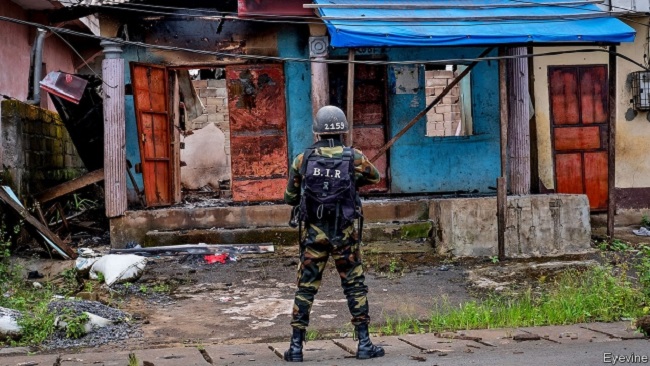

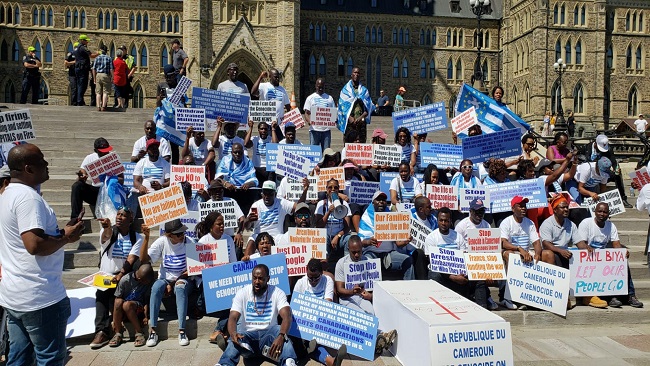

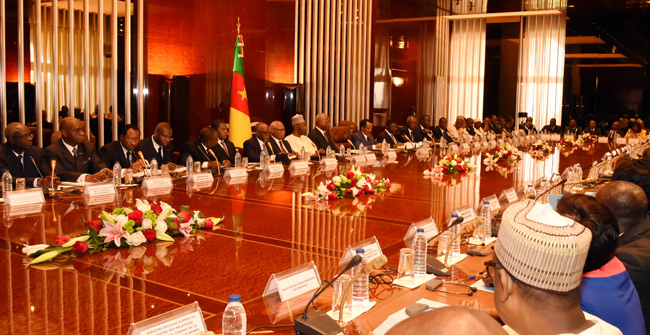
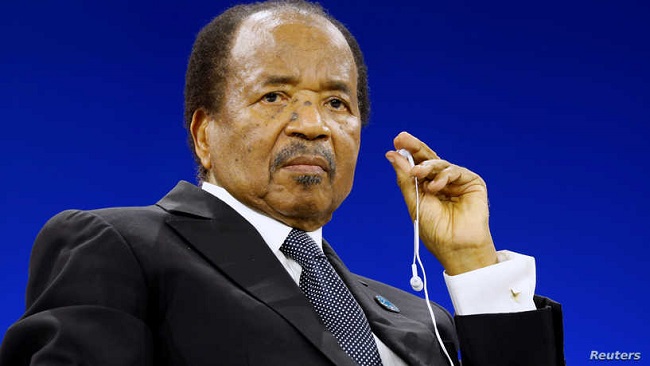
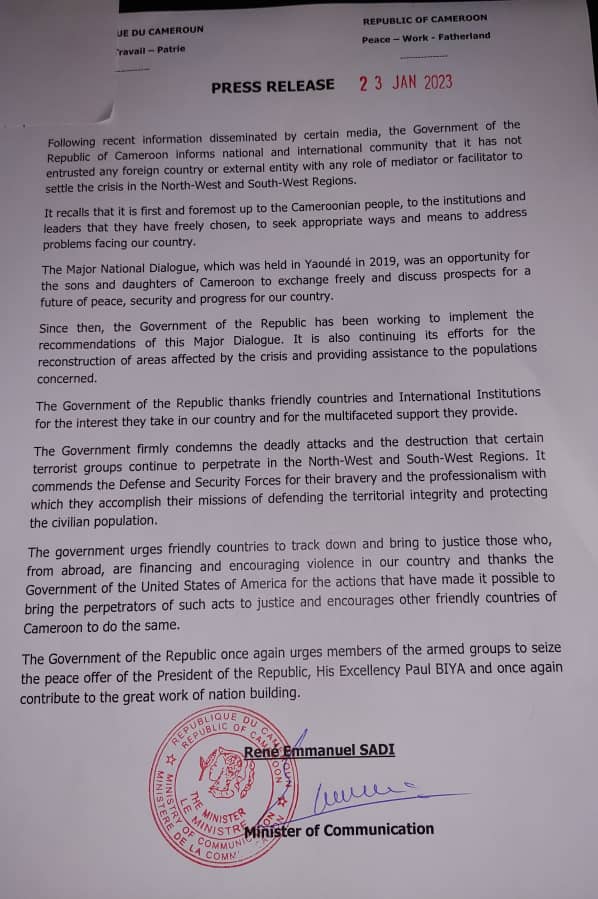


















28, February 2023
Nigeria’s opposition leaders reject early results showing ruling party lead 0
Tensions rose Monday during the counting of Nigeria’s hotly contested presidential election when representatives from the parties of the two main opposition candidates walked out in anger from the center where state-by-state results were being announced.
With 11 of Nigeria’s 36 states having reported as of Monday evening, ruling party candidate Bola Tinubu was leading with 46% of the 6.7 million counted votes so far. He was followed by the main opposition party candidate, Atiku Abubakar, who had 29%, and third party candidate Peter Obi, who had 20%.
In order to win, the candidate who leads the popular vote must also win at least a quarter of the votes in two-thirds of the states and the capital, Abuja.
Tempers flared Monday in Abuja where representatives of all the parties awaited the results. The two leading opposition parties claimed there were disparities between the results announced by the election commission and what their representatives learned at the polling stations.
“We are Nigerians and must defend our rights,” said Dino Melaye, a representative of the main opposition party, the People’s Democratic Party, led by Abubakar. Nigeria’s electoral law allows party representatives or agents to raise concerns about results while they are being announced by the election commission.
The country’s election chief, Mahmood Yakubu, dismissed claims of irregularities and said the results were authenticated by electoral officials.
Representatives for Nigeria’s ruling party accused the opposition parties of inciting violence and called on security forces to restrain them.
“If they don’t, a situation may well arise that none of us want, whereby people actually act on this incitement and begin to kill other people,” said Femi Fani-Kayode, former minister and part of the ruling party’s presidential campaign council. “And if that happens, I assure you it will be very difficult to restrain those on our own side not to retaliate.”
The ruling party pointed to Obi’s victory in the heavily coveted Lagos state, which is home to Nigeria’s largest city, Lagos, as proof that the vote was free and fair. It was a particularly hard loss for ruling party candidate Tinubu, who was once the governor of the state.
It was not immediately known how many ballots were cast in the other 25 states or which candidates stood to gain the most votes from those results.
After the last presidential election in 2019, it took four days for a victor to be declared. A runoff election will be held if no candidate secures at least a quarter of the votes from two-thirds of Nigeria’s 36 states and the capital city, in addition to receiving the highest number of votes.
On Monday, the African Union observer mission said voting had been delayed in more than 80% of polling units mainly because of logistical challenges caused by Nigeria’s currency swap program. The redesign of the Nigerian bank note, the naira, caused cash shortages nationwide, and voters and poll workers had difficulties getting to polling stations Saturday. Voters in some states had to wait until late in the evening to cast ballots, while in other states the election continued Sunday.
Observers from the missions of the African Union and the West African regional bloc known as ECOWAS said the election was generally “encouraging” except for isolated cases of violence that disrupted voting in some states.
Isolated cases of violence on election day led to the deaths of nine civilians, according to the Lagos-based SBM Intelligence company, pointing to a far more peaceful election than in previous years, when there were more deaths.
“Going by this trajectory, we are likely to have fewer deaths” during the election period compared to 2019,” said Confidence MacHarry, a security analyst with SBM Intelligence.
By Engelis Okesack Besong